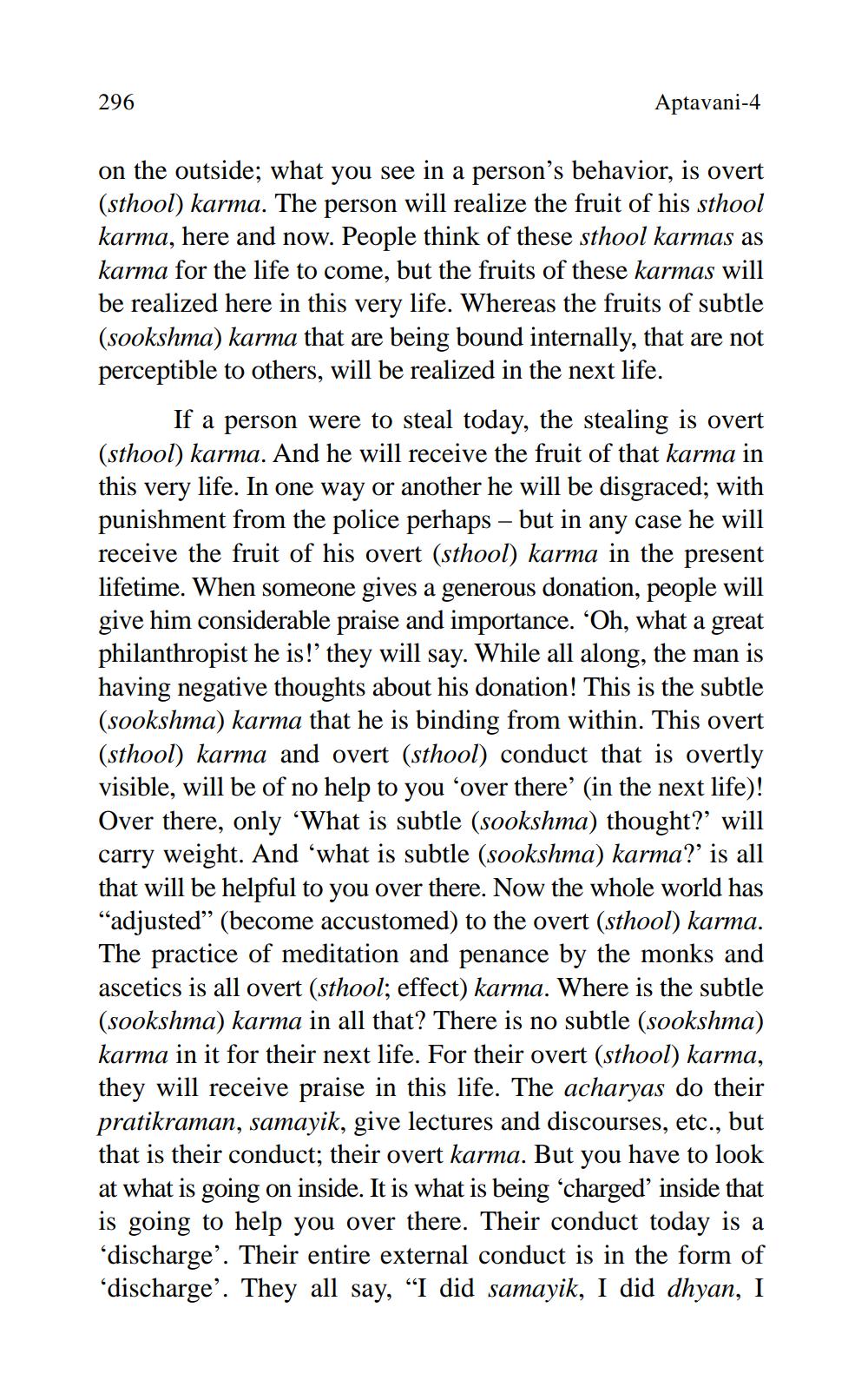________________
296
Aptavani-4
on the outside; what you see in a person's behavior, is overt (sthool) karma. The person will realize the fruit of his sthool karma, here and now. People think of these sthool karmas as karma for the life to come, but the fruits of these karmas will be realized here in this very life. Whereas the fruits of subtle (sookshma) karma that are being bound internally, that are not perceptible to others, will be realized in the next life.
If a person were to steal today, the stealing is overt (sthool) karma. And he will receive the fruit of that karma in this very life. In one way or another he will be disgraced; with punishment from the police perhaps – but in any case he will receive the fruit of his overt (sthool) karma in the present lifetime. When someone gives a generous donation, people will give him considerable praise and importance. 'Oh, what a great philanthropist he is!' they will say. While all along, the man is having negative thoughts about his donation! This is the subtle (sookshma) karma that he is binding from within. This overt (sthool) karma and overt (sthool) conduct that is overtly visible, will be of no help to you ‘over there' (in the next life)! Over there, only ‘What is subtle (sookshma) thought?' will carry weight. And 'what is subtle (sookshma) karma? is all that will be helpful to you over there. Now the whole world has “adjusted” (become accustomed) to the overt (sthool) karma. The practice of meditation and penance by the monks and ascetics is all overt (sthool; effect) karma. Where is the subtle (sookshma) karma in all that? There is no subtle (sookshma) karma in it for their next life. For their overt (sthool) karma, they will receive praise in this life. The acharyas do their pratikraman, samayik, give lectures and discourses, etc., but that is their conduct; their overt karma. But you have to look at what is going on inside. It is what is being ‘charged inside that is going to help you over there. Their conduct today is a 'discharge'. Their entire external conduct is in the form of ‘discharge’. They all say, “I did samayik, I did dhyan, I




